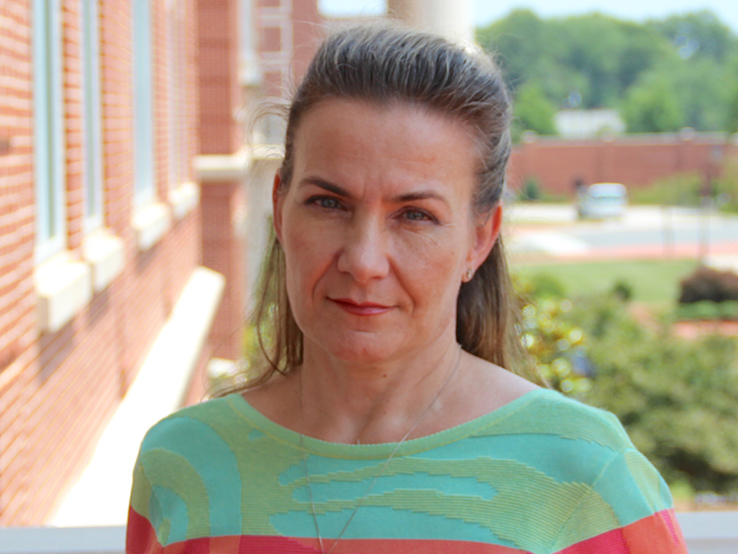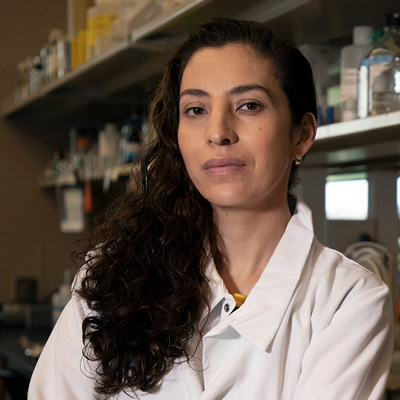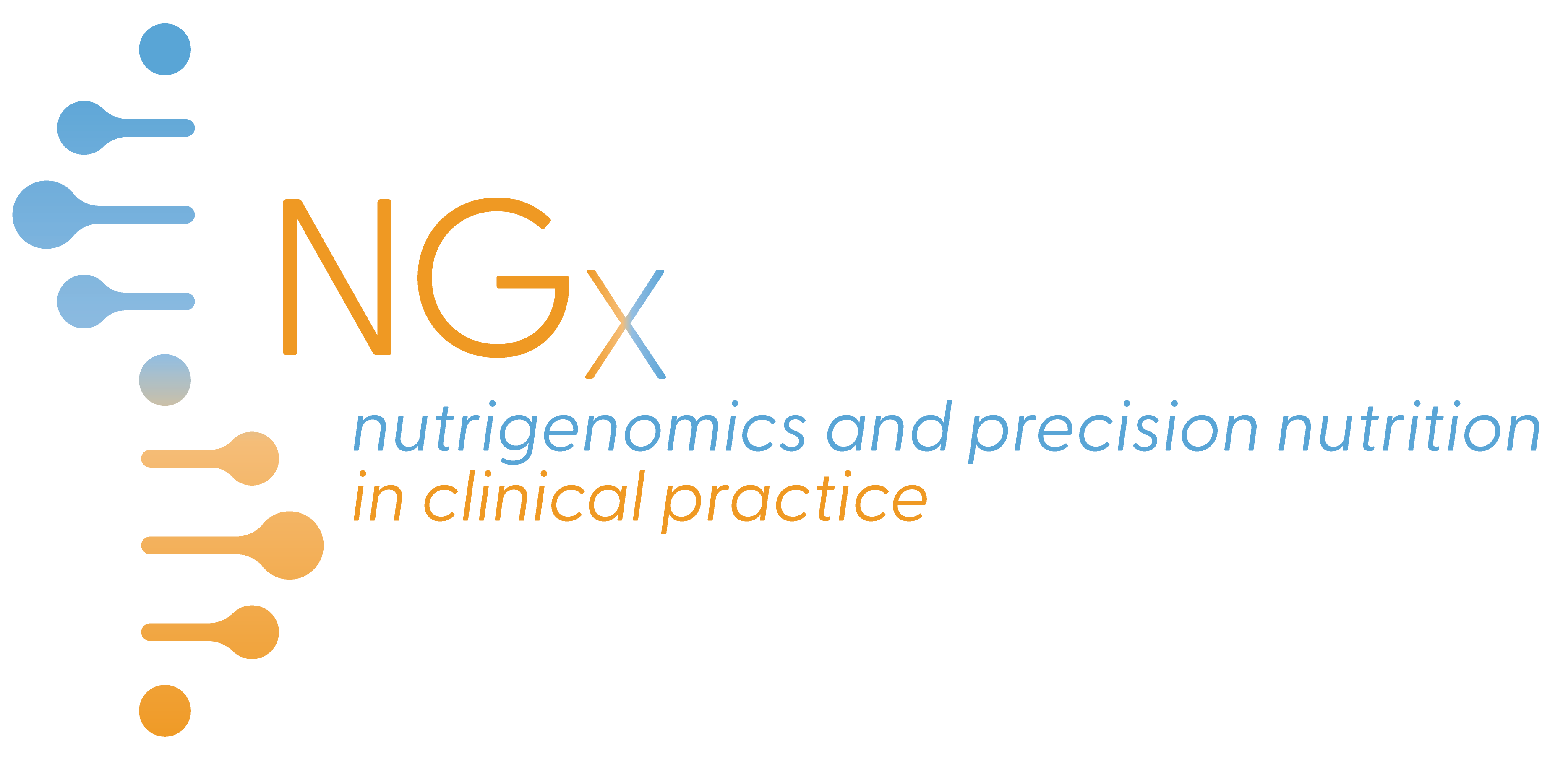NGx
Speakers

Keynote: Naïma Moustaïd-Moussa, Ph.D., FTOS, FAHA
Horn Distinguished Professor, Nutritional Sciences and AVP for Research and Director, Obesity Research Institute at Texas Tech University
Naïma Moustaïd-Moussa, Ph.D., FTOS, FAHA is Horn Distinguished Professor, Nutritional Sciences and AVP for Research and Director, Obesity Research Institute at Texas Tech University. Her research focuses on adipocyte biology, the role of fat cell inflammation in metabolic disorders, the link between obesity and breast cancer and mechanisms by which bioactive food and plant components reduce inflammation and insulin resistance.

John Batsis, MD
Associate Professor of Medicine, UNC School of Medicine
My academic work focuses on three main aspects: (a) understanding the relationships between obesity and sarcopenia (loss of muscle mass, strength and/or function with aging) and important outcomes for older adults; (b) developing multicomponent interventions (diet and exercise) to improve physical function in older adults; (c) using novel technologies (telemedicine, remote monitoring, Internet-of-Things devices) and working collaboratively with trans-disciplinary scientists (engineers, computer scientists) to improve the health and well-being of older adults.

Brian Bennett, PhD
Research Leader, USDA
Brian Bennett, Ph.D, an emerging scientist in nutrigenomics, joined the WHNRC in 2016 as The Research Leader for the Obesity and Metabolism Unit. Dr. Bennett, with his passion to help prevent heart disease, researches the role of the human diet and nutrition as it relates to heart disease. He explores genetic components of chronic metabolic diseases, such as cardiovascular disease and obesity, through integrative genetic studies, also called “systems genetics.” Dr. Bennett’s studies examine the relationship among many types of data such as genetic variants, gene expression levels and metabolite levels and how these interact to increase susceptibility to cardiovascular disease.

Cory Brouwer, PhD
Director of Bioinformatics Services Division and Professor, UNC Charlotte
Dr. Cory R. Brouwer is Director of the Bioinformatics Services Division and Associate Professor of Bioinformatics and Genomics at UNC Charlotte. He and his team provide a wide range of bioinformatics and computational biology services to the NCRC, UNC Charlotte and surrounding area life sciences community. Some recent projects have involved de novo assembly of genomes and transcriptomes using next generation sequencing, clinical association studies and comparative genomics.

Ian Carroll, PhD
Associate Professor, Department of Nutrition, UNC-Chapel Hill
The goals of the Carroll Lab are to determine the mechanisms through which the intestinal microbiota or its metabolites influence gastrointestinal physiology, behavior and adiposity/weight regulation with a view to developing novel nutritional-based therapies for disease. Dr. Carroll’s laboratory uses molecular techniques to characterize the intestinal microbiota in both human and mouse models of nutritional-based diseases. Our investigations ultimately will contribute to understanding host-microbe interactions, where the knowledge gained can be applied to enhance health and reduce illness.

Carol L. Cheatham, PhD
Associate Professor, Psychology & Neuroscience, UNC Nutrition Research Institute
Carol L. Cheatham, PhD is a developmental cognitive neuroscientist who focuses on the influences of nutrition on brain development and function. To explore questions of individual differences in development, she employs both behavioral (e.g., imitation paradigms) and electrophysiological (i.e., ERP) methodology. In her research program at the NRI, she is exploring the effects of nutrients on cognitive abilities across the lifespan. Cheatham specializes in the study of nutrients that are essential to the hippocampus (e.g., fatty acids & choline), which is the memory center of the brain.

Rachel Goode, PhD, MPH, LCSW
Assistant Professor of Social Work and Psychiatry, UNC Nutrition Research Institute
Rachel W. Goode is an Assistant Professor at the School of Social Work and an Adjunct Assistant Professor in the Center for Eating Disorder Excellence, Department of Psychiatry, University of North Carolina at Chapel Hill. Dr. Goode received her PhD, MPH, and MSW from the University of Pittsburgh. Her research interests include developing, implementing, and evaluating equitable and community-engaged interventions to treat obesity and eating disorders.

Steve Hursting, PhD, MPH
Director and Professor of Nutrition, UNC Nutrition Research Institute
Dr. Hursting is the Director and a Professor of Nutrition at the UNC Nutrition Research Institute in Kannapolis, NC. He is also Professor in the Department of Nutrition and the Lineberger Comprehensive Cancer Center at the University of North Carolina at Chapel Hill. An international leader in the area of nutrition, obesity, metabolism and cancer, his lab focuses on the molecular and metabolic mechanisms underlying obesity-cancer associations, and the impact of obesity- energy balance modulation (eg, calorie restriction and exercise) or pharmacologic agents on cancer development, progression, and responses to chemotherapy.

Folami Ideraabdullah, PhD
Associate Professor of Genetics and Nutrition, UNC-Chapel Hill
Dr. Ideraabdullah is an Associate Professor of Genetics in the School of Medicine and holds a joint appointment in the Department of Nutrition in the Gillings School of Global Public Health. She earned her PhD in comparative mouse genetics at UNC Chapel Hill and completed postdoctoral training in epigenetic regulation of genomic imprinting at the University of Pennsylvania. The Ideraabdullah lab studies mechanisms of environmental modulation of the epigenome during development.

Anna Kahkoska, MD, PhD
Assistant Professor of Nutrition, UNC-Chapel Hill
Dr. Kahkoska’s research is focused on identifying new strategies to leverage nutrition alongside other aspects of diabetes self-care to improve the health and wellness of people who live with diabetes. Her team employs multiple scientific approaches to understand the full complexity of diabetes management and how it may change over the lifespan, with a focus on the growing population of older adults living with diabetes.

Natalia Krupenko, PhD
Associate Professor of Nutrition, UNC Nutrition Research Institute
Natalia Krupenko, PhD, Associate Professor of Nutrition, joined the UNC Nutrition Research Institute in April 2014. Dr. Krupenko’s research is focused on the role of folate (vitamin B9) in promoting health and preventing disease in humans. Folate deficiency has been connected with increased risk for neural tube defects, cardiovascular disease and cancer. Recently, however, concerns have been raised regarding the adverse effects of over-supplementation with the vitamin. Dr. Krupenko’s goal is to determine the best ways to utilize health-protective properties of folate and prevent the possibility of its adverse effects in humans.

Anju Lulla, PhD
Research Associate, Meyer Lab, UNC Nutrition Research Institute
Anju Lulla, PhD joined the NRI as a Research Associate in August 2018. She received her PhD from St. John’s University, NY, in Pharmaceutical Sciences with a focus in pharmacology. Prior to joining NRI, Anju was a research assistant at UNC Charlotte in the Bioinformatics Department. She brings with her expertise in bioinformatics and statistical analyses of genomic and microbiome data. She is working with Dr. Katie Meyer to study associations between nutritional metabolites, gut microbiome and cardiovascular health.

Sandra Mooney, PhD
Associate Professor of Nutrition, UNC Nutrition Research Institute
Sandra Mooney, PhD joined the UNC Chapel Hill Nutrition Research Institute in August 2018 as an Associate Professor of Nutrition. Her research program investigates the effect(s) of environment and genes on brain development, with a focus on prenatal alcohol exposure. Current studies use animal models to understand how nutritional needs change after alcohol exposure, thereby increasing the chances that modifying (or personalizing) nutrition will optimize growth and development. This work is supported by the National Institute on Alcohol Abuse and Alcoholism (NIAAA). Dr. Mooney received her Ph.D. from the University of Otago in New Zealand.

Kari North, PhD
Professor of Epidemiology and Genome Sciences, UNC-Chapel Hill
Dr. North is a professor of epidemiology in the UNC Department of Epidemiology and has developed a strong multidisciplinary research program evaluating the genetic epidemiology of cardiovascular disease (CVD) and associated risk factors. Dr. North leads the UNC Department of Epidemiology’s CVD Genetic Epidemiology Computational Laboratory, a collaborative assembly of faculty members, pre- and post-doctoral fellows, and staff members spanning UNC departments with collective expertise in both family- and population-based genetic epidemiological research.

Susan Smith, PhD
Deputy Director and Professor of Nutrition, UNC Nutrition Research Institute
Dr. Smith’s laboratory studies the molecular mechanisms by which dietary components affect prenatal development. Current work largely focuses upon alcohol and how it causes Fetal Alcohol Spectrum Disorders (FASD). We are interested in how alcohol damages the embryo and fetus, and in the environmental and genetic factors that attenuate or heighten alcohol’s toxicity.

Susan Sumner, PhD
Professor of Nutrition and Pharmacology, UNC Nutrition Research Institute
Susan Sumner, PhD is a Professor of Nutrition at UNC Chapel Hill’s Nutrition Research Institute (NRI), and the Director of the Metabolomics and Exposome Laboratory (MEL) at UNC Chapel Hill. Dr. Sumner is working to make personalized medicine and precision nutrition a reality. Using state-of-the-art metabolomics and exposome technologies, Dr. Sumner’s team determines how molecules that are present in our tissues and biological fluids are associated with states of health and wellness. Through this approach, biomarkers are discovered that can lead to new diagnostics for the early detection and diagnosis of disease, to monitor treatment and intervention, and to inform the development of intervention strategies.

Deborah Tate, PhD
Professor of Nutrition, UNC Nutrition Research Institute
Deborah Tate is a professor in the Department of Nutrition. She holds a joint appointment in the Department of Health Behavior and a faculty appointment at the Nutrition Research Institute. Dr. Tate is a behavioral scientist, receiving her Ph.D. in Clinical Psychology. Her research focuses on two main areas: (a) strategies for improving both short and long-term body weight regulation to reduce disease risks and (b) the development and translation of programs as alternatives to clinic-based care using digital and wearable technologies. She has been continuously funded in obesity, diabetes prevention and digital health intervention research by the National Institutes of Health since 2000 and is known internationally for her work in web and mobile interventions.

Elizabeth Tejero, PhD
Medical Sciences Researcher, Nutrigenetics and Nutrigenomics Laboratory, National Institute of Genomic Medicine, Mexico
Currently, Terejo is a Medical Sciences Researcher “D” affiliated with the Nutrigenetics and Nutrigenomics Laboratory at INMEGEN (National Institute of Genomic Medicine) and is a member of the National System of Researchers (SNI) Level 2. Since 2009, Tejero has been collaborating on research in Nutrigenomics, focusing on projects aimed at investigating the interaction between the genome and compounds present in foods, among other topics. These research lines have made significant contributions, such as studying the interaction between genetic variants and lifestyle factors influencing the development of metabolic diseases.

Isis Trujillo-Gonzalez, PhD
Assistant Professor of Nutrition, UNC Nutrition Research Institute
Isis Trujillo-Gonzalez, PhD is a Research Assistant Professor at the University of North Carolina at Chapel Hill’s Nutrition Research Institute (NRI). Her research is focused on mechanisms linking choline status and neurodevelopment in health and disease states. She joined the NRI in 2015 to conduct her postdoctoral research under Steve Zeisel mentoring. She earned her PhD in Biomedical Sciences from the National Autonomous University of Mexico (UNAM).

Saroja Voruganti, PhD
Director of Clinical Research Core Lab, Associate Professor of Nutrition, UNC Nutrition Research Institute
Dr. Saroja Voruganti, Associate Professor of Nutrition, is working on building a nationally and internationally recognized research program in nutritional genomics at UNC. A unique field, nutritional genomics seeks to identify genetic susceptibility to diseases, effect of genetic variation on nutrient metabolism and the effect of nutrients on gene expression. She has extensively investigated the interplay between nutritional and genetic factors influencing disease risk in ethnically diverse populations, especially minority populations such as Mexican American, American Indian, Alaska Native, Parsi Zoroastrian and Hispanic children populations. Her research is focused on uncovering new connections between genetics, nutrition, and epidemiology that can lead to more accurate determination disease risk and new treatment options for metabolic diseases.

NGx 2024 includes 19 speakers from various affiliations:
- National Institute of Genomic Medicine, Mexico
- Texas Tech University
- UNC Charlotte, Bioinformatics Services Division
- UNC-Chapel Hill
- Epidemiology
- Genetics
- Genome Sciences
- Medicine
- Public Health
- Psychology and Neuroscience
- Social Work
- UNC Nutrition Research Institute
- United States Department of Agriculture
Sponsors





